The blockchain space is in a constant state of evolution, with new technologies and applications emerging at breakneck speed. As a blockchain developer, are you merely keeping up, or are you pushing the boundaries of what's possible? Advanced blockchain programming tutorials allowing you to create sophisticated decentralized applications (dApps), explore cutting-edge concepts, and even build your own custom blockchains. This guide will help you navigate the vast landscape of resources available and point you towards the best tutorials to propel your skills to the next level.
Table of Contents
Why Advanced Blockchain Programming Matters?
While mastering the fundamentals of blockchain development is crucial, advanced programming skills are indispensable for making a lasting impact in this dynamic field. Here's why advanced expertise is essential:
Building Complex dApps
Basic knowledge allows for simple applications, but advanced skills in smart contract architecture, optimization techniques, and secure design patterns are necessary for developing sophisticated decentralized applications (dApps). This expertise enables the creation of scalable, user-friendly applications capable of addressing real-world use cases.
Developing Custom Blockchains
While established blockchains like Ethereum and Bitcoin provide a solid foundation, certain projects require customized solutions. Advanced programming skills empower developers to design and build bespoke blockchains tailored to specific needs, optimizing them for performance, security, and scalability.
Addressing Interoperability Challenges
As the blockchain ecosystem grows, seamless interoperability between different chains becomescrucial. Advanced developers play a pivotal role in creating bridges, protocols, and solutions that facilitate smooth communication and asset transfer across diverse blockchains, unlocking the potential of a multi-chain environment.
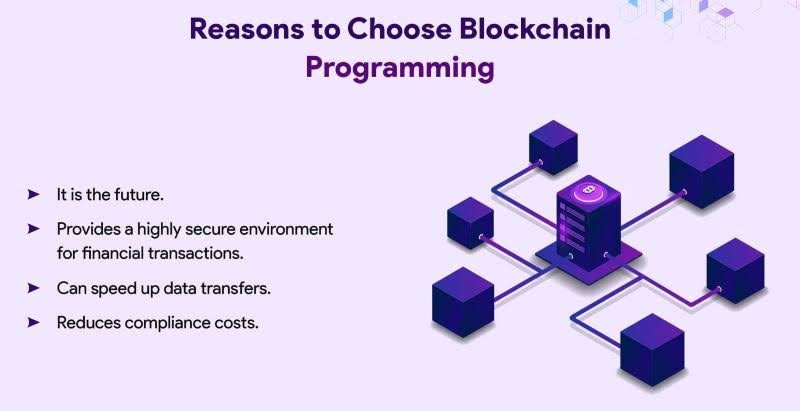
Career Advancement: Lucrative Opportunities Await
In today's competitive tech industry, advanced blockchain programming skills are highly sought after. Companies across various sectors are actively seeking skilled developers to innovate and maintain cutting-edge blockchain solutions. Mastering advanced concepts opens doors to lucrative roles such as:
- Blockchain Architect: Leading the development of intricate blockchain systems, making critical decisions on architecture, scalability, and security.
- Smart Contract Auditor: Analyzing smart contract security, identifying vulnerabilities, and recommending enhancements to safeguard user funds.
- Protocol Developer: Contributing to blockchain protocol development, shaping the future of decentralized technology standards.
- Lead Blockchain Engineer: Guiding teams in creating innovative blockchain solutions and navigating complex technical challenges.
These roles often come with competitive salaries and the opportunity to work on groundbreaking projects that are reshaping industries.
Driving Innovation: Pushing Technological Boundaries
Advanced blockchain developers are at the forefront of technological innovation. They pioneer new ideas, develop inventive solutions to complex problems, and contribute to advancements in decentralized applications, consensus mechanisms, security protocols, and more. By mastering advanced programming skills, you can join these innovators in shaping the future of blockchain technology.
Essential Skills for Advanced Blockchain Programming
Moving beyond the fundamentals of blockchain development demands mastery of several advanced skills. These skills are pivotal for tackling intricate challenges, innovating solutions, and maintaining a competitive edge in this rapidly evolving domain.
Solidity Mastery
Solidity, the predominant language for Ethereum smart contracts, requires more than basic proficiency. Advanced Solidity expertise encompasses:
- Advanced Patterns and Best Practices: Implementing state machines, libraries, inheritance, and design patterns enhances contract efficiency, modularity, and maintainability.
- Gas Optimization: Strategizing to minimize Ethereum network gas costs ensures economical transaction execution.
- Error Handling and Security: Vigilantly addressing vulnerabilities such as re-entrancy attacks and integer overflows ensures robust smart contract security.
Smart Contract Security
Given the immutability of deployed smart contracts, prioritizing security is paramount. Advanced blockchain programmers excel in:
- Common Vulnerabilities: Identifying and mitigating risks like re-entrancy attacks and integer overflows safeguards contracts from exploitation.
- Security Auditing: Conducting comprehensive audits to preemptively identify and rectify vulnerabilities prior to deployment.
- Secure Design Principles: Implementing resilient design patterns and best practices fortifies smart contract integrity against potential threats.
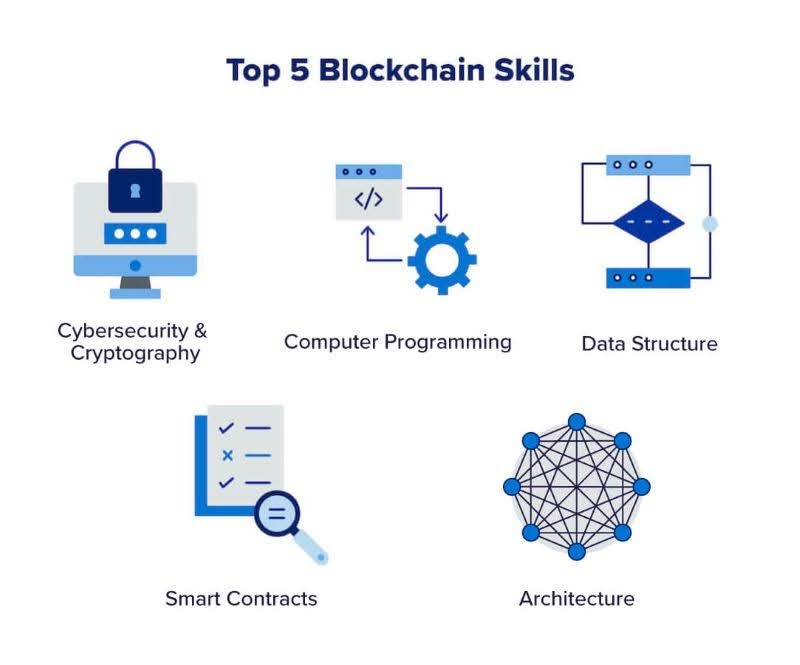
Decentralized Application (dApp) Architecture
Creating decentralized applications necessitates comprehensive expertise encompassing:
- Front-End Development: Crafting user interfaces using web3 libraries and frameworks for seamless dApp interaction.
- Back-End Development: Establishing blockchain interaction infrastructure, including APIs and databases.
- Wallet Integration: Enabling user interaction through cryptocurrency wallets enhances dApp usability.
- Decentralized Storage: Leveraging IPFS or Arweave for storing dApp data and assets ensures robust data security and availability.
Consensus Mechanisms
At the core of blockchain technology, consensus mechanisms warrant advanced understanding, including:
- PoW and PoS: Profound comprehension of Proof of Work (PoW) and Proof of Stake (PoS), encompassing strengths, weaknesses, and environmental impacts.
- Exploration of New Mechanisms: Familiarity with emerging mechanisms like Delegated Proof of Stake (DPoS) and Proof of Authority (PoA) for nuanced evaluation and implementation.
- Use Case Specific Evaluation: Selecting the optimal consensus mechanism aligned with project requirements, balancing factors like transaction speed, security, and decentralization.
Blockchain Interoperability
In an increasingly interconnected blockchain landscape, mastering interoperability is indispensable, involving:
- Cross-Chain Communication: Facilitating secure data exchange across disparate blockchains through robust communication protocols.
- Bridge Development: Constructing bridges to facilitate seamless asset and data transfer between different blockchain networks.
- Oracles Integration: Integrating oracles to enable smart contracts' interaction with external real-world data.
- Adherence to Standards: Staying updated on evolving standards such as the Inter-Blockchain Communication (IBC) protocol to streamline interoperability efforts.
Curated List of Advanced Blockchain Programming Tutorials
Smart Contract Development
ChainShot Bootcamp: Dive deep into Solidity and Ethereum smart contract development with this comprehensive course. Ideal for intermediate to advanced developers, it covers advanced patterns, security best practices, testing, and deployment strategies. Despite requiring a paid subscription, its well-structured content, hands-on projects, and interactive exercises make it a worthwhile investment.
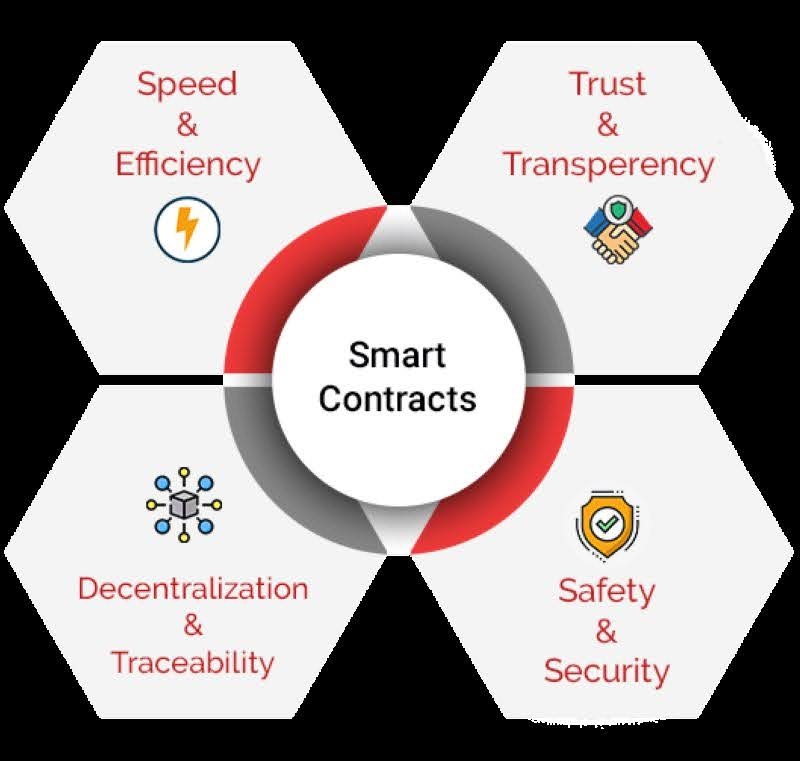
ConsenSys Academy Developer Program: Offering specialized tracks on smart contract security and decentralized finance (DeFi), this program provides in-depth Ethereum development courses taught by industry experts. Though costly and requiring commitment, it's perfect for developers seeking expertise in specific blockchain areas.
Patrick Collins' FreeCodeCamp Course: Beginners and intermediate developers can start with this free course to grasp Solidity basics and smart contract development fundamentals. It covers contract deployment, Ethereum blockchain interaction, and serves as a valuable starting point despite its limited scope compared to paid options.
DeFi Development
EatTheBlocks DeFi Mastery: This extensive course explores all aspects of DeFi development, including automated market makers (AMMs), yield farming, and flash loans. Designed for intermediate to advanced developers, it emphasizes deep understanding of DeFi protocols, profitable strategies, and navigating security challenges in this evolving space.
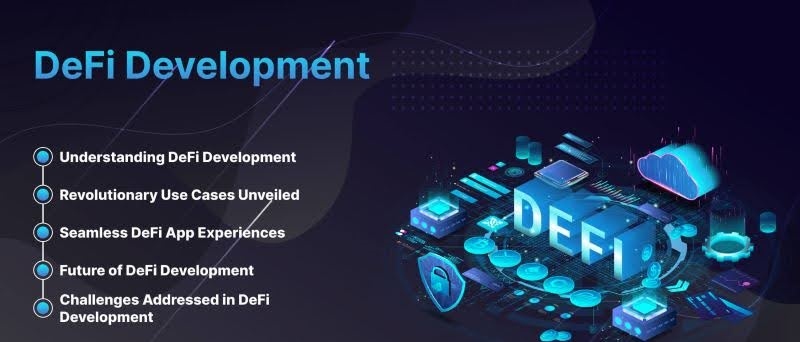
Buildspace DeFi Projects: A project-based learning platform offering guided tutorials on building diverse DeFi applications. It's interactive and practical, focusing on hands-on experience with concepts like composability and design patterns, making it ideal for developers aiming to apply their skills to real-world projects.
NFT Development
CryptoZombies: An interactive, gamified course teaching ERC-721 NFT creation and a basic Solidity-based zombie game. Beginners and intermediates enjoy learning Solidity fundamentals in an engaging manner, setting a strong foundation for further NFT exploration.
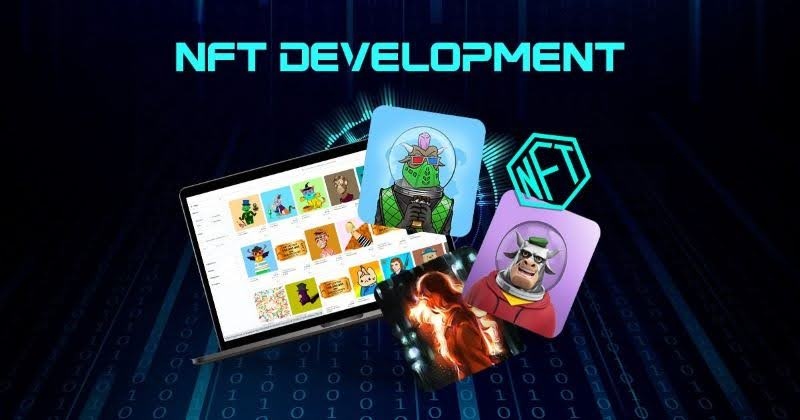
Nader Dabit's NFT Course: Covering ERC-721 and ERC-1155 standards, marketplace development, royalties, and more, this course suits intermediate to advanced developers aspiring to build NFT platforms or applications. It requires prior Solidity knowledge but provides detailed explanations and practical examples.
Custom Blockchain Development
Substrate Developer Hub: The official resource for Substrate, a framework for custom blockchain creation. It spans blockchain architecture, consensus mechanisms, runtime modules, and custom pallets. With a steep Rust programming learning curve, it's invaluable for advanced developers pursuing bespoke blockchain solutions.
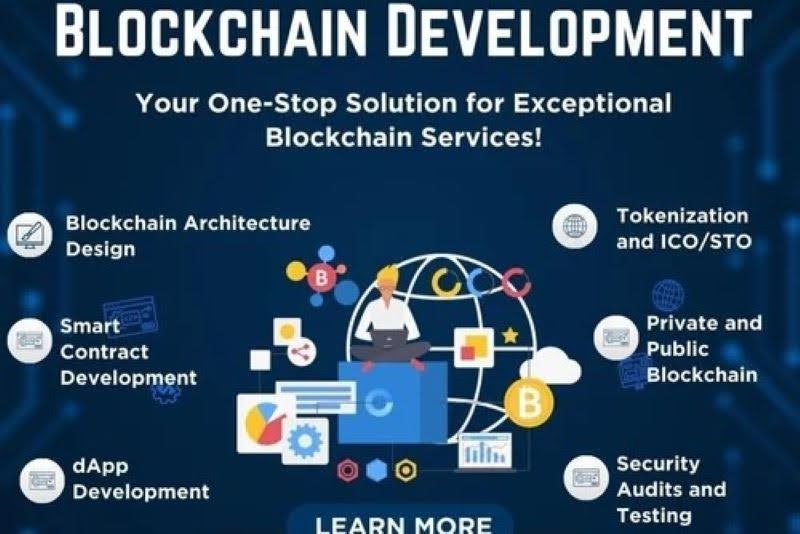
Cosmos SDK Documentation: Official documentation for the Cosmos SDK, guiding developers through building application-specific blockchains with Tendermint consensus. Despite requiring Go programming expertise and a steep learning curve, it's crucial for those interested in building interoperable blockchain networks within the Cosmos ecosystem.
Interoperability Solutions
Polkadot Wiki: A comprehensive guide to Polkadot's cross-chain interoperability framework, covering parachains, bridges, relay chains, and its unique consensus mechanism. Suited for advanced developers with Substrate and Rust proficiency, it's essential for building or contributing to the Polkadot ecosystem.
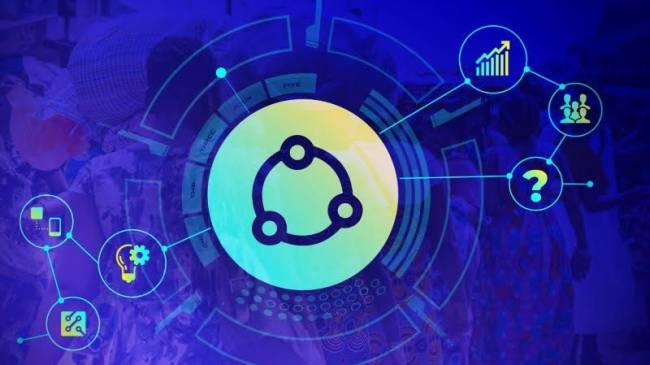
Cosmos IBC Tutorials: These tutorials focus on building bridges and achieving blockchain interoperability using the Inter-Blockchain Communication (IBC) protocol. They offer practical guides and real-world examples for developers familiar with Cosmos SDK and Go, facilitating hands-on experience in cross-chain application development.
Additional Resources for Advanced Blockchain Developers
As you delve deeper into blockchain development, having the right tools and resources can significantly streamline your workflow, bolster security, and connect you with a supportive community of developers. Here are some indispensable resources:
Blockchain Development Frameworks
Truffle: A widely used Ethereum development environment that simplifies smart contract development, testing, and deployment. It offers a suite of tools to automate repetitive tasks and enhance development efficiency.
Hardhat: Known for its flexibility and powerful debugging tools, Hardhat is ideal for experienced developers seeking greater control over their Ethereum development process and faster iteration cycles.
Brownie: A Python-based framework for Ethereum development and testing. It's favored by Python developers for its intuitive syntax and seamless integration with popular testing libraries like pytest.
Testing and Auditing Tools
Slither: A static analysis tool for Solidity that automatically identifies common vulnerabilities such as re-entrancy bugs, integer overflows, and access control issues.
Mythril: Another static analysis tool for Ethereum smart contracts, offering vulnerability detection and a symbolic execution engine to simulate contract behavior and uncover potential security flaws.
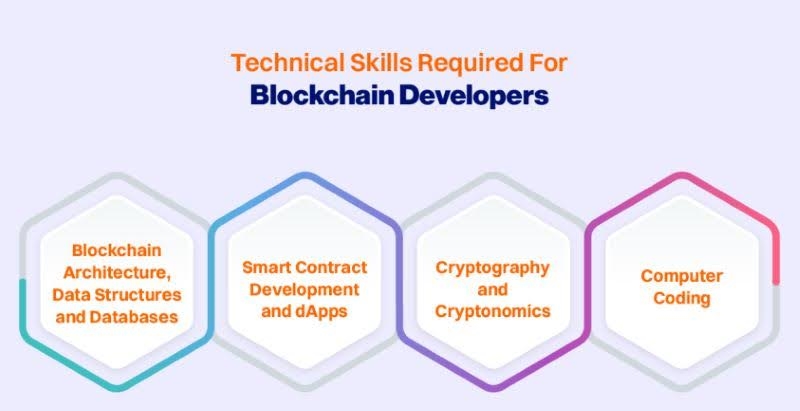
Blockchain Explorers
Etherscan: A widely used block explorer for the Ethereum blockchain. It enables users to search transactions, review smart contract code, and analyze network data with transparency.
BlockScout: Supporting multiple blockchains including Ethereum, Ethereum Classic, and POA Network, BlockScout offers transaction tracking, smart contract verification, and detailed token information.
Developer Communities
Reddit: Engage with vibrant communities like the Ethereum subreddit to ask questions, share insights, and network with fellow developers passionate about blockchain technology.
Stack Exchange: Visit Ethereum Stack Exchange for technical support, discussions on best practices, and solutions to common development challenges within the Ethereum ecosystem.
Project-Specific Communities: Many blockchain projects maintain dedicated forums and Discord servers where developers can collaborate, seek advice, and stay updated on project developments.
The field of blockchain development is dynamic and rapidly evolving, with a burgeoning demand for skilled programmers. By mastering advanced concepts and leveraging the resources outlined in this guide, you position yourself at the vanguard of this technological revolution. Embrace complex challenges, innovate with new ideas, and push the limits of what blockchain can achieve. The future is decentralized, and your expertise is pivotal in unlocking its full potential.
Whether you're looking to build sophisticated dApps, create custom blockchains, or tackle complex interoperability challenges, the U2U Network is your gateway to advanced blockchain programming tutorials and expertise. By engaging with this vibrant community, you can connect with experienced developers, gain valuable insights, and accelerate your journey towards becoming a blockchain expert. So, take advantage of the resources available, embrace the challenge of advanced blockchain programming, and join the U2U Network to unlock your full potential in the world of blockchain.



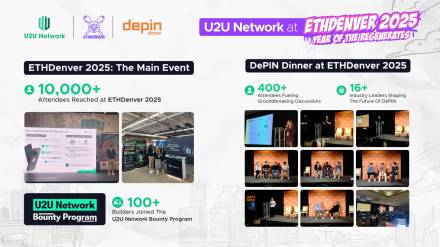
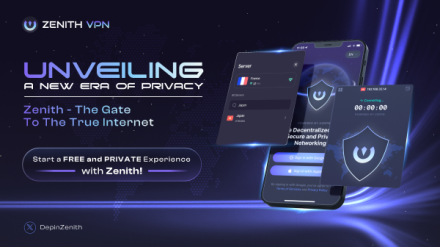
.png)
